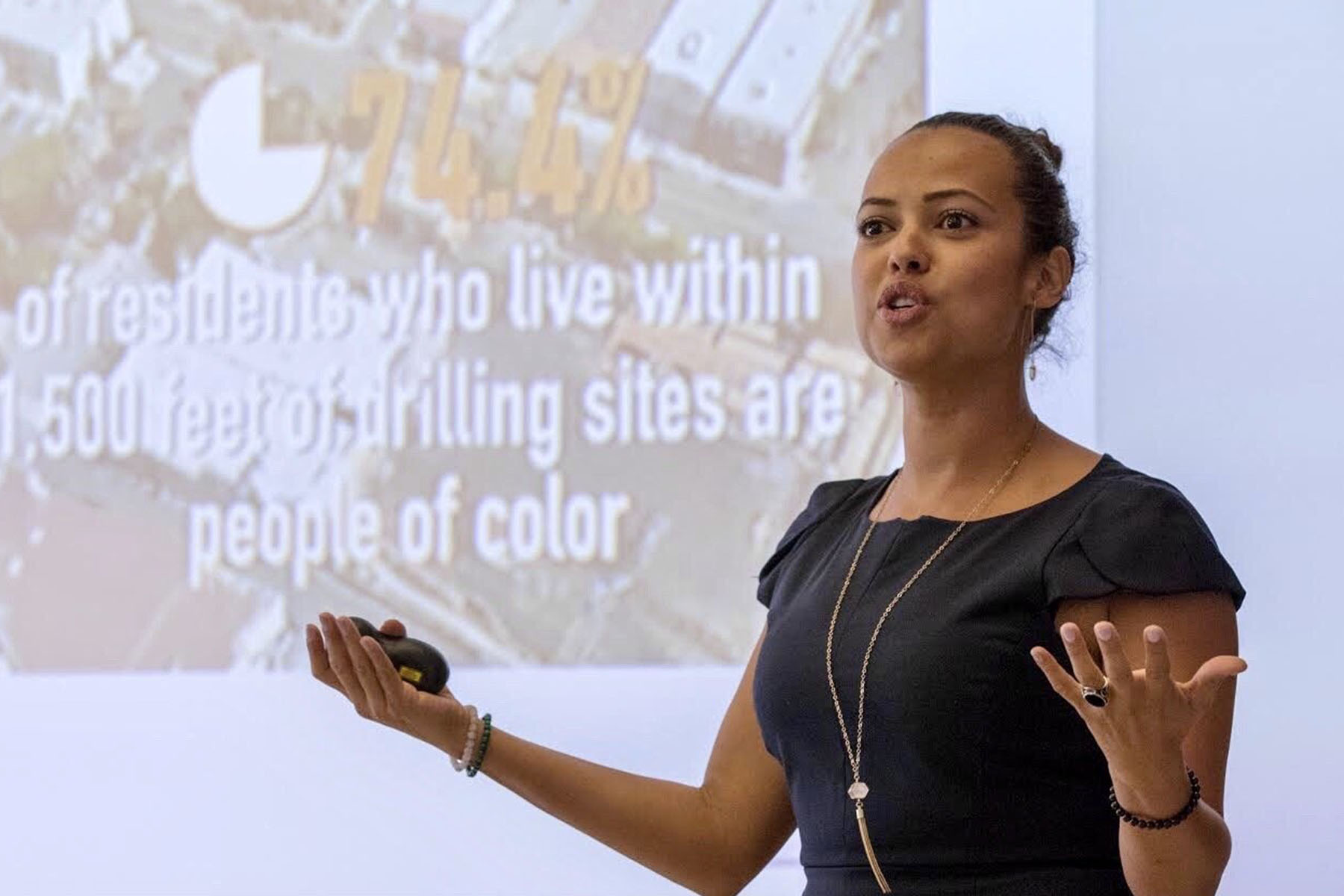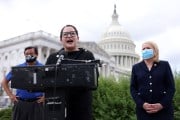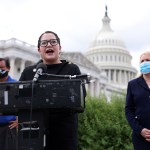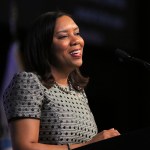Getting more Afro Latinas elected to office — and eventually to Congress — is going to take a strong pipeline of local candidates. To get there, Latino Victory has committed to recruiting 50 Afro Latinas to its candidate training program by June 2025.
Latino Victory, an influential progressive group that recruits and backs Latinx candidates, says the goal is the culmination of months of work studying the lack of Afro Latina representation across all levels of government.
“Representation matters, and it’s not just about having people who look like you in positions of power, but really, what it means in terms of the experiences that they bring to the table and that they can draw on for policies that support our community,” said Katharine Pichardo, the executive director of the Latino Victory Project, who worked on its Afro Latinas Lead project.
Afro Latinas, women who identify as both Black and Latina, bring unique experiences when it comes to discrimination and economic challenges — and even a different experience when it comes to running for office, Pichardo said.
A 2022 survey by the Pew Research Center found that more than 1 in 10 of all Latinx adults in the United States — 6 million people — identify as Afro Latinos, a recognition of both Hispanic and African descent. Latinas remain underrepresented in Congress: While they make up nearly 10 percent of the U.S. population, they make up 3 percent of seats in Congress and lead three of the 100 most populous U.S. cities. Among the 18 Latinas in Congress today — a record — none publicly identify as Afro Latina.
There is no definitive tally of how many Afro-Latinas or Afro-Latinxs hold elected office in the United States. Black women, who make up 15.3 percent of the U.S. population, hold 5.4 percent of seats in Congress. Three Afro Latinos — all Democrats — are currently serving in the U.S. House.
-
Previous Coverage:
-
Previous Coverage: There’s a new push to elect an Afro Latina to Congress
Latino Victory said that months of listening sessions with 75 political leaders, including four Afro Latinas who unsuccessfully ran for Congress with the backing of the group, yielded important lessons for ensuring success in future elections.
Importantly, Latino Victory says it found that Afro Latinas running for office struggled to be as competitive in fundraising as their men counterparts. The three Afro Latinas who ran in Democratic congressional primaries were outraised by the eventual winner in their race, it discovered, while only one of the three Afro Latinos recently elected to Congress faced the same challenge.
This shortfall, the Latino Victory report says, impacts candidates’ ability to communicate with voters. “One item of consensus among the women who participated in the roundtable discussions was the fact that asking for financial support is generally viewed negatively within the Latino culture, and especially for women,” the report says.
Pichardo said Latino Victory leaders are committed to helping tackle this challenge by directly contributing to the campaigns, helping increase exposure to donors and broadening a candidate’s network of political support.
Another key challenge the group found is a thin bench of potential Afro Latina candidates. Some of the barriers, the group found, include the fact that many Afro Latinas simply don’t see themselves as someone who would run for office, or fear that being their “authentic selves” as both Black and Latina will hurt how voters from both communities perceive them.
They are also concerned about “bias in the media and how their lives could be upended with negative publicity over issues that white and/or male candidates wouldn’t be called [out] on.”
Aura Vasquez, an Afro Latina and Colombian immigrant running for a seat on the Los Angeles City Council, said she feels many candidates like herself are “navigating uncharted territory” when it comes to running for office because of lack of representation.
“There are a lot of us. There are a lot of Afro Latinos from Haiti, from Mexico. It’s amazing to me that sometimes when I talk about me being an Afro Latina from Colombia, people say, ‘Oh, I didn’t know that there were Black people in other countries.’”
Vasquez, who was endorsed by Latino Victory in her race and participated in one of the listening sessions for Afro Latinas Lead, said that even in an area as diverse as Los Angeles, she has found many voters thanking her for embracing her identity as a Colombian, an immigrant and a Black Latina.
Vasquez said one of her motivations for running is to help address some of the polarization and division that exists in politics, including between Latinx and Black Americans. “Part of the systemic issues of oppression and racism is that we see it has done a really good job pitting us against each other,” Vasquez said. “One of the most beautiful things that I constantly talk about during my campaign is my ability to bring people together … to bring more unity and solidarity.”
Pichardo said Vasquez is an example of building a bench of prospective Afro Latinas at the local level who might eventually fill seats in Congress and beyond. She said the group’s work is cut out for them. The work entails increasing public conversation around the lack of representation of Afro Latinas, advocating for more research to understand “Afro Latinidad,” boosting recruitment and supporting candidates who can win.
“I can tell her how wonderful it is that she’s an Afro Latina running for office 100 times, but if I’m not supporting her campaign in some way, we’re still in the same spot,” Pichardo said.
It’s not yet clear if that work will deliver any women identifying as Afro Latinas to Congress in the 2024 election, though Pichardo said there’s still time.
“For us, the work is continuing and something that we’re doing in 2024 and beyond,” Pichardo said. “So, if it doesn’t happen in 2024, we are definitely going to make sure we double down to get it in the next cycle.”







